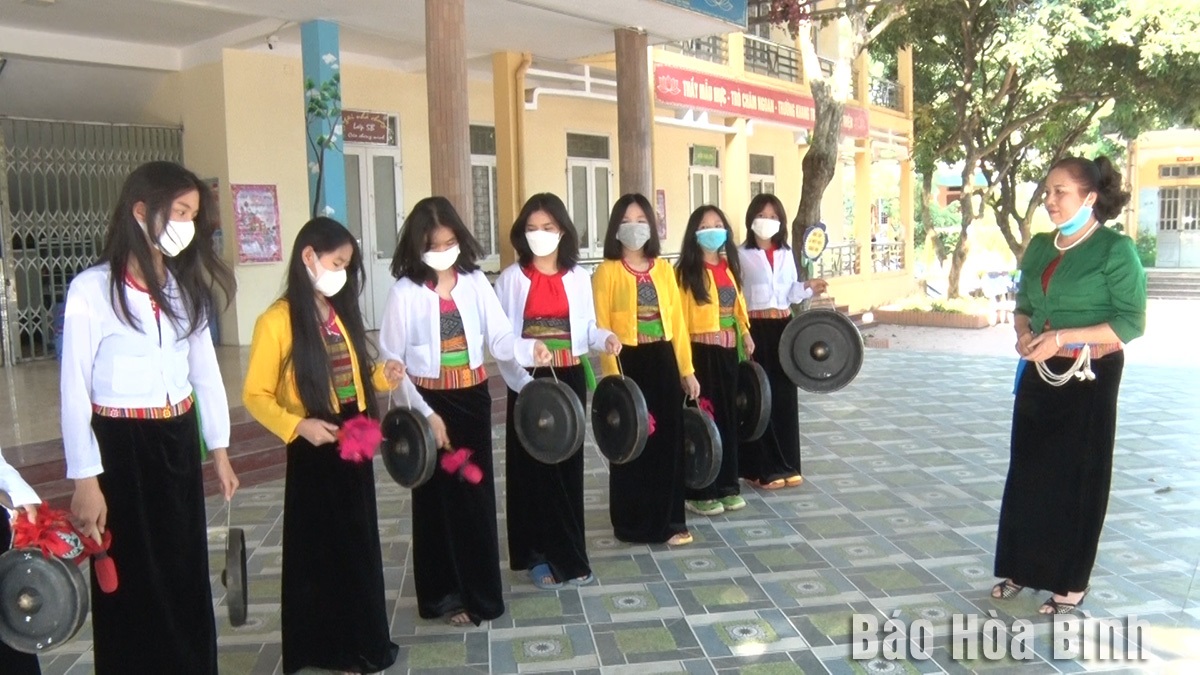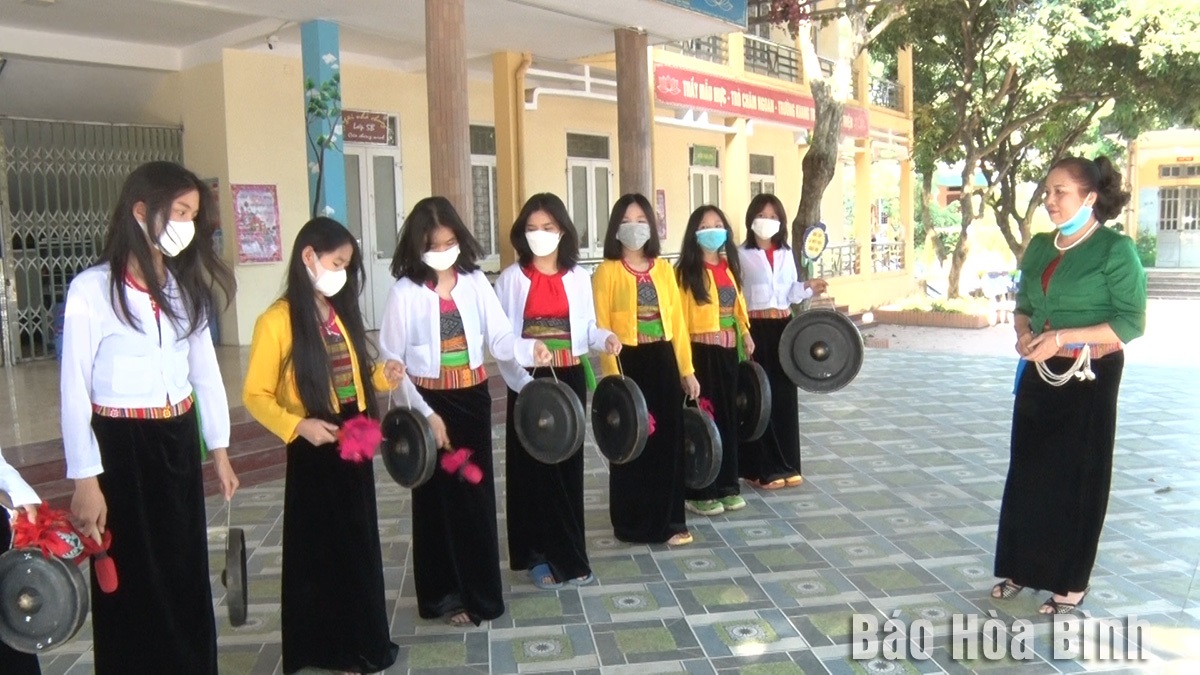
(HBO) - Despite being in her sixties, the passion for Muong culture of Dinh Thi Kieu Dung in Bo village, Bo township, Kim Boi district remains unchanged. She continues to spend time on studying, collecting, and introducing the distinctive values of Muong culture. For Dung, the work she has been doing not only contributes to preserving and promoting the Muong culture in the locality, but is also her way to learn from and follow President Ho Chi Minh's ideology, morality, and style.
Dinh Thi Kieu Dung in Bo township (Kim Boi) is teaching local pupils how to perform the Muong gong.
Since childhood, lullabies of her grandmother and mother such as e "dap bong bon" and "da oi, da o" or the Thuong Dang and Bo Meng singing, which often resounded in her family, have deeply ingrained themselves in Dung's soul. Her dream is to be the "fire keeper” and the one who gives soul to Muong culture, and keeps it shining. Dung has dedicated her time to visiting villages, meeting with elders, and collecting ancient folk melodies.
Additionally, on Sundays, she organizes classes to teach young people how to perform traditional musical instruments, and Muong folk songs and dances.
Currently, she is compiling two books "Nhung lan dieu dan ca Muong” (The Melodies of Muong folk songs), and "Nghe thuat danh cong chieng cua nguoi Muong Dong” (The art of playing the gong of Muong Dong people).
Dung hopes that she has much time and good health to continue studying, collecting, preserving and promoting the cultural heritage of the Muong people, thus contributing to preserving and promoting the unique cultural identity of the Muong ethnic group.
According to Quach Dinh Thu, Secretary of the Party Committee of Bo township, in recent years, Dung has always been a shining example in popularising and encourage people in her residential area to follow the Party's guidelines, and the State's policies and laws, contributing to building the great national unity.
She actively carries out activities to preserve the traditional culture of the Muong ethnic group, and is also a typical example of studying and following President Ho Chi Minh's ideology, morality and style, he added.
With an increasingly vibrant and widespread emulation movement aimed at building cultured residential areas and cultured families, Yen Thuy District has been making steady progress toward improving both the material and spiritual well-being of its people, while fostering a civilized, prosperous, beautiful, and progressive community.
Once lacking recreational spaces and community facilities, Residential Group 2 in Quynh Lam Ward (Hoa Binh City) has recently received attention for the construction of a new, spacious, and fully equipped cultural house. The project followed the model of state support combined with public contributions in both labor and funding.
The "All people unite to build cultural life" movement, which has been effectively integrated with Kim Boi district’s socio-economic development goals, is fostering a lively spirit of emulation across local residential areas, hamlets, villages, public agencies, and enterprises. In addition, through the initiative, traditional cultural values are being preserved and promoted, while community solidarity and mutual support in poverty reduction and economic development are being strengthened.
A working delegation of the Hoa Binh provincial People’s Committee led by its Permanent Vice Chairman Nguyen Van Toan on June 11 inspected the progress of a project to build the Mo Muong Cultural Heritage Conservation Space linked to tourism services in Hop Phong commune, Cao Phong district.
Born and growing in the heroic land of Muong Dong, Dinh Thi Kieu Dung, a resident in Bo town of Kim Boi district, in her childhood was nurtured by the sweet lullabies of her grandmother and mother. These melodies deeply imprinted on her soul, becoming an inseparable part of her love for her ethnic group's culture. For over 20 years, this love for her hometown has driven Dung to research, collect, and pass down the cultural values of the Muong people to future generations.
In the final days of May, the Ethnic Art Troupe of Hoa Binh Province organized performances to serve the people in remote, mountainous, and particularly disadvantaged areas within the province. These were not just ordinary artistic shows, but they were the meaningful journeys aimed at spreading cultural values, enhancing the spiritual life of the people and contributing to the preservation of ethnic minority cultural identities.



